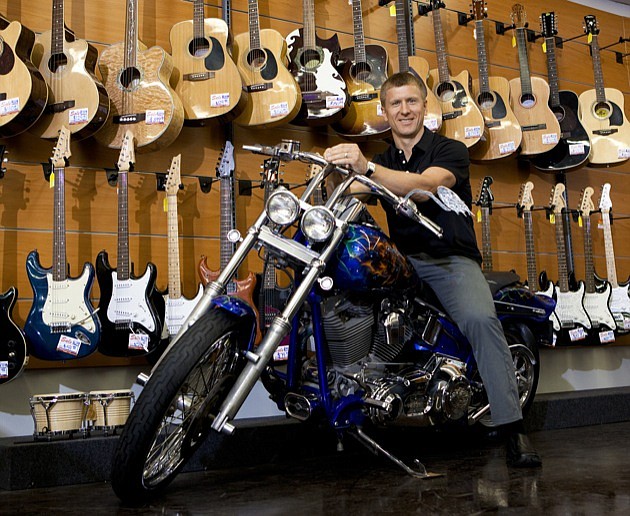- November 24, 2024
-
-
Loading

Loading

Greg Twarowski was content to simply escape the turmoil in his homeland when the 16-year-old Polish native declared political asylum in the United States in 1990.
When Twarowski arrived he spoke next to no English and had no idea what he was going to do with his life. His first objective was to move from Michigan, where he met up with family friends, to sunny Florida.
Two decades later Twarowski has turned a boyhood hobby of bartering everything from stamps to toys into a thriving business. Moreover, he is on the front end of an American entrepreneurial staple: Taking big risks.
Twarowski owns America's Super Pawn, a chain of three pawnshops in Manatee and Sarasota counties. He opened two of the stores in the last 18 months, at a cost of more than $1 million for both projects. He is considering opening a fourth store early next year.
Twarowski declines to release specific annual revenues, only to say that sales in 2010 are up company-wide 15% to 20% over last year.
Now Twarowski hopes the most recent store, which opened in late June on a high-traffic area of U.S. 41 in Bradenton, will be a model for his company and the oft-maligned pawn industry. Indeed, the new location, which spreads 12,000 square feet and has bright lights, marked sections and trained and courteous sales people, looks and feels more like a chain retail store than a stereotypical pawnshop.
“I want to attract the non-traditional customers,” says Twarowski. “We aren't shady and we don't deal in stolen goods. We are just another retailer who deals in used items.”
Twarowski got into the pawn industry in 1994 and he opened his first America's Super Pawn store in west Bradenton in 2004. But while that store was successful on a small scale, Twarowski says it wasn't until late 2008 when he decided to go for big growth. “I just got to a certain point where I realized I had to grow,” he says.
Of course, it didn't hurt that the recession has been a boon to the pawn industry in two ways: One, it has attracted customers who seek to save money on household goods and other items. And the downturn has also meant that more people have stuff to pawn, which is a loan on personal property used as collateral.
The majority of the wares sold in America's Super Pawn stores, about 70%, stem from pawn loans, Twarowski says. The other products come from outright buying the goods, either used or on wholesale. The latter effort tends to be more profitable.
Twarowski first expanded America's Super Pawn in January 2009, when he opened a store on U.S. 301, a few miles north of downtown Sarasota. He spent about $400,000 on a build out project for that store.
The next expansion was the store on U.S. 41, which was previously a tile-flooring outlet. Twarowski spent $750,000 on renovating and stocking that store, a project that included painting a large mural on the front wall. Says Twarowski: “I went out of my way to make this store really nice.”
The store is like a live version of eBay. Guitars hang in one corner, costing anywhere from $50 to $500. A Harley Davidson motorcycle that goes for $10,000 is parked near the front of the store. Garden tools take up another aisle, which is opposite the jewelry section, where $150 earrings are sold next to a $7,000 necklace. Laptop computers and GPS systems take up other shelf space.
The pawnshop also has a large parking lot in the back that Twarowski plans to use to store boats, cars and large commercial construction equipment. Some of those big-ticket items are clearly a side effect of the recession, although Twarowski says there “will always be people in need of short-term loans.”
Twarowski might be fluent in pawn-speak these days, but his initial career aspirations were distinctly different. In fact, Twarowski graduated from USF with a degree in microbiology in 2002 — a little more than a decade after he left his parents behind in Poland to come to America on his own.
“I thought about going to med school, but that's just not me,” says Twarowski. “Business comes really natural to me.”
That could be an asset in the near future because Twarowski's big-picture challenge, to change the image of the pawn industry, could become a secondary issue. The next potential threat: More federal government regulation of the industry through financial reform bills currently being debated in Congress.